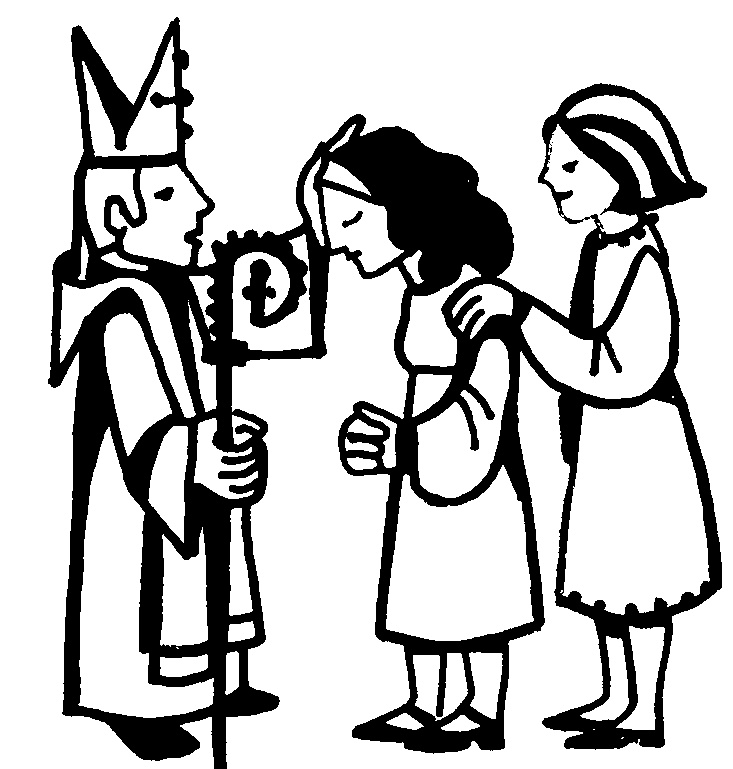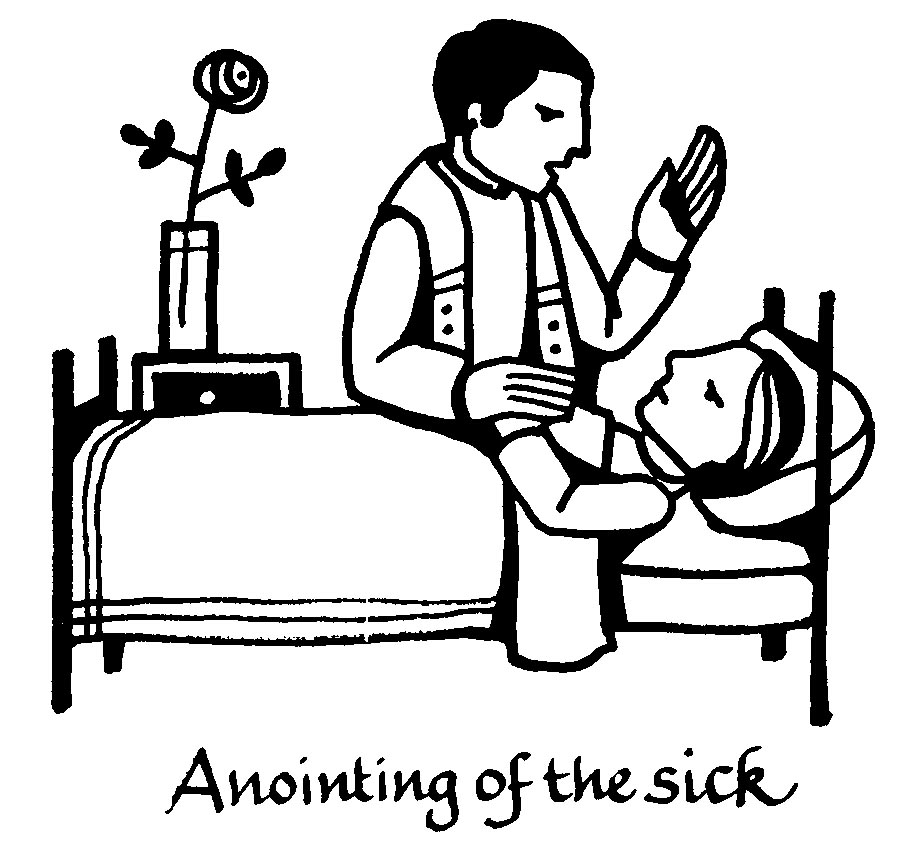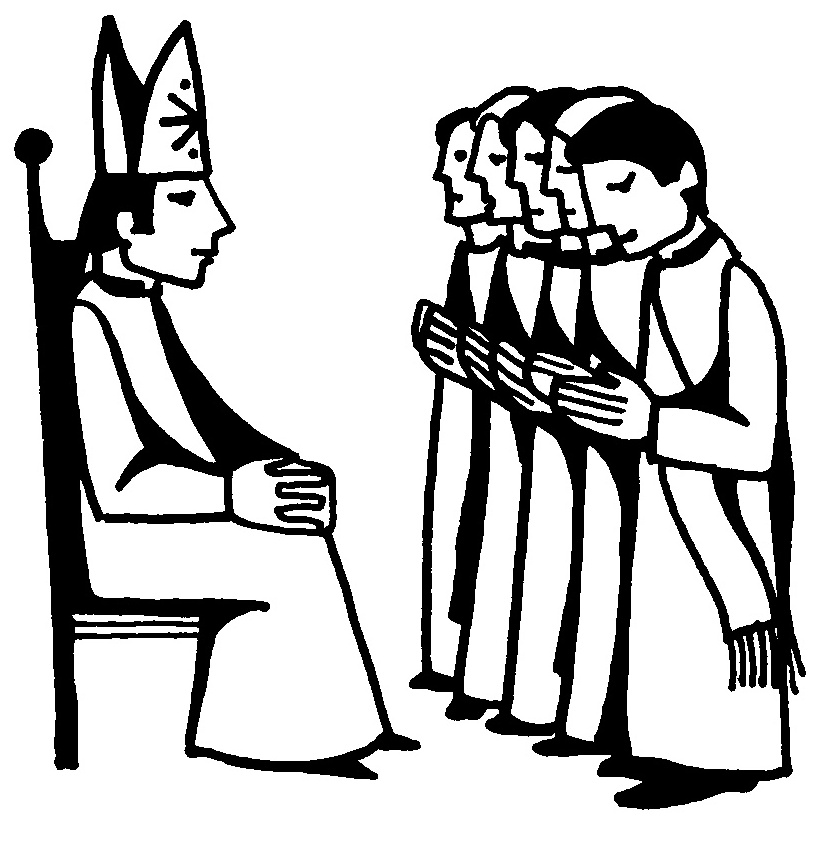

Acts of public worship, including the Sacraments, fulfill the mission of Christ and the Church to sanctify the people of God and glorify the Lord.
"The sacraments are efficacious signs of grace, instituted by Christ and entrusted to the Church, by which divine life is dispensed to us. The visible rites by which the sacraments are celebrated signify and make present the graces proper to each sacrament. They bear fruit in those who receive them with the required dispositions." (Catechism of the Catholic Church, 1131)

"Go therefore and make disciples of all nations, baptizing them in the name of the Father and of the Son and of the Holy Spirit, teaching them to observe all that I have commanded you" (Mt 28:19-20).
The fruit of Baptism, or baptismal grace, is a rich reality that includes forgiveness of original sin and all personal sins, birth into the new life by which the baptized becomes an adoptive child of the Father, a member of Christ, and a temple of the Holy Spirit. By this very fact, the person baptized is incorporated into the Church, the Body of Christ, and made a sharer in the priesthood of Christ. (CCC, 1278)
Baptism imprints on the soul an indelible spiritual sign which consecrates the baptized person for Christian worship. Because of the character, Baptism cannot be repeated. (CCC, 1279)
Since the earliest times, Baptism has been administered to children, for it is a grace and a gift of God that does not presuppose any human merit; children are baptized in the faith of the Church. Entry into Christian life gives access to true freedom. (CCC, 1282)

"Now when the apostles at Jerusalem heard that Samaria had received the word of God, they sent to them Peter and John, who came down and prayed for them that they might receive the Holy Spirit; for it had not yet fallen on any of them, but they had only been baptized in the name of the Lord Jesus. Then they laid their hands on them and they received the Holy Spirit" (Acts 8:14-17).
The sacrament of Confirmation perfects Baptismal grace; it is the sacrament which gives the Holy Spirit in order to root us more deeply in the divine filiation, incorporate us more firmly into Christ, strengthen our bond with the Church, associate us more closely with her mission, and help us bear witness to the Christian faith in words accompanied by deeds. (CCC, 1316)
Confirmation, like Baptism, imprints a spiritual mark or indelible character on the Christian’s soul; for this reason one can receive this sacrament only once in one’s life. (CCC, 1317)
A candidate for Confirmation who has attained the age of reason must profess the faith, be in the state of grace, have the intention of receiving the sacrament, and be prepared to assume the role of disciple and witness to Christ, both within the ecclesial community and in temporal affairs. (CCC, 1319)
The essential rite of Confirmation is anointing the forehead of the baptized with sacred chrism, together with the laying on of the minister’s hand and the words: "Be sealed with the Gift of the Holy Spirit." (CCC, 1320)
When Confirmation is celebrated separately from Baptism, its connection with Baptism is expressed, among other ways, by the renewal of baptismal promises. The celebration of Confirmation during the Eucharist helps underline the unity of the sacraments of Christian initiation. (CCC, 1321)

"I am the living bread that came down from heaven; if any one eats of this bread, he will live for ever; ... he who eats my flesh and drinks my blood has eternal life and ... abides in me, and I in him" (Jn 6:51, 54, 56).
The Eucharist is the heart and the summit of the Church’s life, for in it Christ associates his Church and all her members with his sacrifice of praise and thanksgiving offered once for all on the cross to his Father; by this sacrifice he pours out the graces of salvation on his Body which is the Church. (CCC, 1407)
The Eucharistic celebration always includes: the proclamation of the Word of God; thanksgiving to God the Father for all his benefits, above all the gift of his Son; the consecration of bread and wine; and participation in the liturgical banquet by receiving the Lord’s body and blood. These elements constitute one single act of worship. (CCC, 1408)
The Eucharist is the memorial of Christ’s Passover, that is, of the work of salvation accomplished by the life, death, and resurrection of Christ, a work made present by the liturgical action. (CCC, 1409)
It is Christ himself, the eternal high priest of the New Covenant who, acting through the ministry of the priests, offers the Eucharistic sacrifice. And it is the same Christ, really present under the species of bread and wine, who is the offering of the Eucharistic sacrifice. (CCC, 1410)
The essential signs of the Eucharistic sacrament are wheat bread and grape wine, on which the blessing of the Holy Spirit is invoked and the priest pronounces the words of consecration spoken by Jesus during the Last Supper: “This is my body which will be given up for you. . . . This is the cup of my blood. . . .” (CCC, 1412)
By the consecration, the transubstantiation of the bread and wine into the Body and Blood of Christ is brought about. Under the consecrated species of bread and wine Christ himself, living and glorious, is present in a true, real, and substantial manner: his Body and his Blood, with his soul and his divinity. (CCC, 1413)
As sacrifice, the Eucharist is also offered in reparation for the sins of the living and the dead and to obtain spiritual or temporal benefits from God. (CCC, 1414)
Communion with the Body and Blood of Christ increases the communicant’s union with the Lord, forgives his venial sins, and preserves him from grave sins. Since receiving this sacrament strengthens the bonds of charity between the communicant and Christ, it also reinforces the unity of the Church as the Mystical Body of Christ. (CCC, 1416)
The Church warmly recommends that the faithful receive Holy Communion when they participate in the celebration of the Eucharist; she obliges them to do so at least once a year. (CCC, 1417) Having passed from this world to the Father, Christ gives us in the Eucharist the pledge of glory with him. Participation in the Holy Sacrifice identifies us with his Heart, sustains our strength along the pilgrimage of this life, makes us long for eternal life, and unites us even now to the Church in heaven, the Blessed Virgin Mary, and all the saints. (CCC, 1419)

"Husbands, love your wives, as Christ loved the Church. . . . This is a great mystery, and I mean in reference to Christ and the Church" (Eph 5:25, 32).
The marriage covenant, by which a man and a woman form with each other an intimate communion of life and love, has been founded and endowed with its own special laws by the Creator. By its very nature it is ordered to the good of the couple, as well as to the generation and education of children. Christ the Lord raised marriage between the baptized to the dignity of a sacrament. (CCC, 1660)
The sacrament of Matrimony signifies the union of Christ and the Church. It gives spouses the grace to love each other with the love with which Christ has loved his Church; the grace of the sacrament thus perfects the human love of the spouses, strengthens their indissoluble unity, and sanctifies them on the way to eternal life, (CCC, 1661)
Marriage is based on the consent of the contracting parties, that is, on their will to give themselves, each to the other, mutually and definitively, in order to live a covenant of faithful and fruitful love. (CCC, 1662) Since marriage establishes the couple in a public state of life in the Church, it is fitting that its celebration be public, in the framework of a liturgical celebration, before the priest (or a witness authorized by the Church), the witnesses, and the assembly of the faithful. (CCC, 1663)
The Christian home is the place where children receive the first proclamation of the faith. For this reason the family home is rightly called “the domestic church,” a community of grace and prayer, a school of human virtues and of Christian charity. (CCC, 1666)

"On the evening of that day, the first day of the week," Jesus showed himself to his apostles. "He breathed on them, and said to them: 'Receive the Holy Spirit. If you forgive the sins of any, they are forgiven; if you retain the sins of any, they are retained'" (Jn 20:19, 22-23).
The forgiveness of sins committed after Baptism is conferred by a particular sacrament called the sacrament of conversion, confession, penance, or reconciliation. (CCC, 1486)
The sinner wounds God's honor and love, his own human dignity as a man called to be a son of God, and the spiritual well-being of the Church, of which each Christian ought to be a living stone. (CCC, 1487)
To the eyes of faith no evil is graver than sin and nothing has worse consequences for sinners themselves, for the Church, and for the whole world. (CCC, 1488)
To return to communion with God after having lost it through sin is a process born of the grace of God who is rich in mercy and solicitous for the salvation of men. One must ask for this precious gift for oneself and for others. (CCC, 1489)
The movement of return to God, called conversion and repentance, entails sorrow for and abhorrence of sins committed, and the firm purpose of sinning no more in the future. Conversion touches the past and the future and is nourished by hope in God’s mercy. (CCC, 1490)
The sacrament of Penance is a whole consisting in three actions of the penitent and the priest’s absolution. The penitent’s acts are repentance, confession or disclosure of sins to the priest, and the intention to make reparation and do works of reparation. (CCC, 1491)
The spiritual effects of the sacrament of Penance are:
Individual and integral confession of grave sins followed by absolution remains the only ordinary means of reconciliation with God and with the Church. (CCC, 1497)

"Is any among you sick? Let him call for the presbyters of the Church, and let them pray over him, anointing him with oil in the name of the Lord; and the prayer of faith will save the sick man, and the Lord will raise him up; and if he has committed sins, he will be forgiven: (Jas 5:14-15).
The sacrament of Anointing of the Sick has as its purpose the conferral of a special grace on the Christian experiencing the difficulties inherent in the condition of grave illness or old age. (CCC, 1527)
The proper time for receiving this holy anointing has certainly arrived when the believer begins to be in danger of death because of illness or old age. (CCC, 1528)
Each time a Christian falls seriously ill, he may receive the Anointing of the Sick, and also when, after he has received it, the illness worsens. (CCC, 1529)
Only priests (presbyters and bishops) can give the sacrament of the Anointing of the Sick, using oil blessed by the bishop, or if necessary by the celebrating presbyter himself. (CCC, 1530)
The celebration of the Anointing of the Sick consists essentially in the anointing of the forehead and hands of the sick person, the anointing being accompanied by the liturgical prayer of the celebrant asking for the special grace of this sacrament. (CCC, 1531)
The special grace of the sacrament of the Anointing of the Sick has as its effects:
In addition to the Anointing of the Sick, the Church offers those who are about to leave this life the Eucharist as viaticum. Communion in the body and blood of Christ, received at this moment of “passing over” to the Father, has a particular significance and importance. It is the seed of eternal life and the power of resurrection, according to the words of the Lord: “He who eats my flesh and drinks my blood has eternal life, and I will raise him up at the last day.” The sacrament of Christ once dead and now risen, the Eucharist is here the sacrament of passing over from death to life, from this world to the Father. (CCC, 1524)
Thus, just as the sacraments of Baptism, Confirmation, and the Eucharist form a unity called “the sacraments of Christian initiation,” so too it can be said that Penance, the Anointing of the Sick and the Eucharist as viaticum constitute at the end of Christian life “the sacraments that prepare for our heavenly homeland” or the sacraments that complete the earthly pilgrimage. (CCC, 1525)

"I remind you to rekindle the gift of God that is within you through the laying on of my hands" (2 Tim 1:6). "If any one aspires to the office of bishop, he desires a noble task." (1 Tim 3:1). "This is why I left you [Titus] in Crete, that you amend what was defective, and appoint presbyters in every town, as I directed you" (Titus 1:5).
The whole Church is a priestly people. Through Baptism all the faithful share in the priesthood of Christ. This participation is called the "common priesthood of the faithful." Based on this common priesthood and ordered to its service, there exists another participation in the mission of Christ: the ministry conferred by the sacrament of Holy Orders, where the task is to serve in the name and in the person of Christ the Head in the midst of the community. (CCC, 1591)
The ministerial priesthood differs in essence from the common priesthood of the faithful because it confers a sacred power for the service of the faithful. The ordained ministers exercise their service for the People of God by teaching, divine worship, and pastoral governance. (CCC, 1592)
Since the beginning, the ordained ministry has been conferred and exercised in three degrees: that of bishops, that of presbyters, and that of deacons. The ministries conferred by ordination are irreplaceable for the organic structure of the Church: without the bishop, presbyters, and deacons, one cannot speak of the Church. (CCC, 1593)
The bishop receives the fullness of the sacrament of Holy Orders, which integrates him into the episcopal college and makes him the visible head of the particular Church entrusted to him. As successors of the apostles and members of the college of bishops, the bishops share in the apostolic responsibility and mission of the whole Church under the authority of the Pope, successor of St. Peter. (CCC, 1594)
Priests are united with the bishops in sacerdotal dignity and at the same time depend on them in the exercise of their pastoral functions; they are called to be the bishops’ prudent co-workers. They form around their bishop the presbyterium which bears responsibility with him for the particular Church. They receive from the bishop the charge of a parish community or a determinate ecclesial office. (CCC, 1595)
Deacons are ministers ordained for tasks of service of the Church; they do not receive the ministerial priesthood, but ordination confers on them important functions in the ministry of the word, divine worship, pastoral governance, and the service of charity, tasks which they must carry out under the pastoral authority of their bishop. (CCC, 1596)
The sacrament of Holy Orders is conferred by the laying on of hands followed by a solemn prayer of consecration asking God to grant the ordinand the graces of the Holy Spirit required for his ministry. Like Baptism and Confirmation, Ordination imprints an indelible sacramental character. (CCC, 1597)